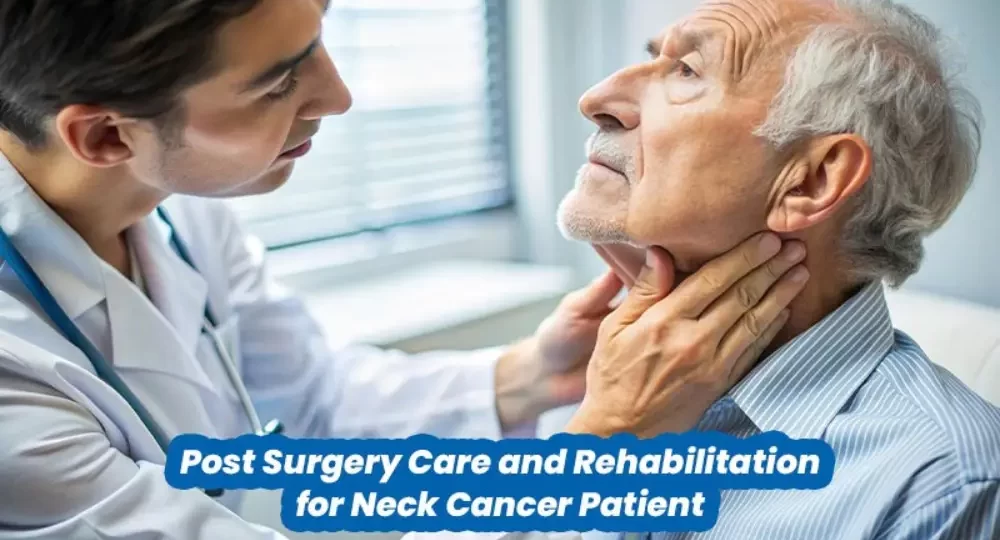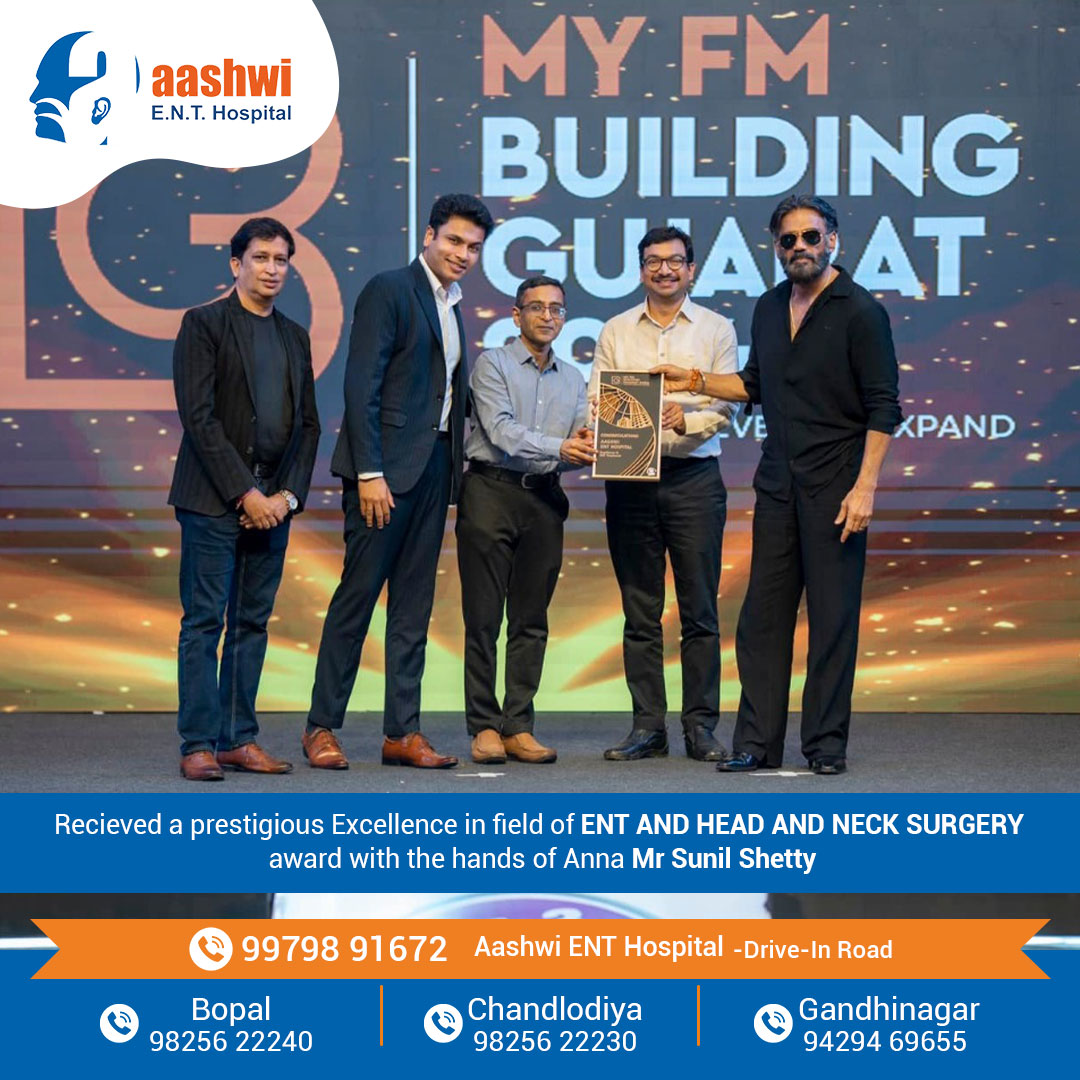
The most critical phase of the treatment cycle of a cancer surgery patient is the post-operative recovery period. Proper post-operative care and support services can expedite or enhance the quality of recovery for the patient, thereby ensuring early return to the previous life. Aashwi ENT Hospital, situated at Ahmedabad, has marked its presence with complete post-operative care and support systems coupled with both physical and mental well-being.
In this paper, we focus on some major aspects of post-operative care, rehabilitation services, and the support systems available at Aashwi ENT Hospital for the recovery process and thus the quality of life of neck cancer patients.
Aashwi ENT Hospital Post-Operative Care
1. Pain Management
Post-operative survival of patients suffering from neck cancer often results in symptomatic pain or discomfort, which should be treated as best as possible to support recovery. The post-operative care of Aashwi ENT Hospital shall have a personalized pain control plan and will include-
- Medication: Prescription pain relievers or anti-inflammatory drugs shall be prescribed according to needs to reduce the discomfort.
- Non-pharmacological interventions: Cold compress, breathing, and guided relaxation exercises also facilitate pain management in the post-operative stage.
Pain management is effective not only at maximizing comfort but also to promote early mobilization, critical to an expedient recovery.
2. Wound Care and Infection Prevention
Appropriate care of wounds must be implemented so as not to acquire infection and to heal the surgical incision fully. Aashwi ENT Hospital will educate the patient and their caregivers with comprehensive wound care instructions and follow-ups so both are sufficiently informed with:
- Cleaning and dressing: Nurses teach patients how to keep the wound clean and dry, covered with a dressing that has the least risk for infection.
- Observation for warning signs: Provide instructions to the patient on what to look out for, such as redness, swelling, or unusual discharge, to signify infection that should be seen promptly.
Aside from the direct care, the follow-up visit post-surgery will enable the nurses to monitor the healing of the wound and complications at an early stage.
3. Drainage and Tube Care
In some instances, after surgery, tubes might be left to drain excess fluids from the surgical site. In most cases, these tubes are temporary and are removed after a couple of days following surgery, but a controlled attitude is necessary toward their management.
- Hospital staff ensure that patients and caregivers can know how to manage and care for the drainage appropriately, including emptying the tubes and keeping the area clean.
- Advice on identifying complications like obstruction or leakage requiring medical intervention.
4. Hospital Stays and Monitoring
Patients have to stay in the hospital for several days after undergoing neck cancer surgery to be monitored. The entire medical team observes their vital signs, follows up on healing, and ensures that the patient is out of danger to take him home. Close monitoring can identify potential complications in its early stages, including:
- Post-operative bleeding
- Swelling or shortness of breath
- Impairment of swallowing or speech capabilities
- Once clients are stable enough to be discharged, the hospital ensures that they receive comprehensive discharge orders and a plan for treating themselves at home.
Rehabilitative Services![Post Surgery Care and Rehabilitation for Neck Cancer Patients]()
1. Speech and Swallowing Therapy
For neck cancer involved in the larynx or throat, a patient is likely to have some speaking and swallowing difficulty. Aashwi ENT Hospital ensures that speech and swallowing therapy are not left out in the rehabilitation process. Highly experienced specialists guide and work in close association with patients to enable them regain critical functions.
- Speech Therapy: Of course, for patients with partial or total laryngectomy, communication is significantly restored through speech therapy. Therapy exercises and techniques help a patient speak clear articulations and, at times, include introducing assistive devices to facilitate speech.
- Swallowing Therapy: The surgery carried out in the throat area may lead to swallowing abnormalities, thus bringing about difficulties in eating or drinking. Therapists use exercises and different food and drink options to re-teach the patients on how to swallow with more comfort and security.
2. Physiotherapy and Motility Recovery
Neck cancer surgeries may, in some cases, leave the patient weak or unable to move her head or neck and shoulders properly. Neck, shoulder, and all affected areas regain strength, range, and mobility through physiotherapy at Aashwi ENT Hospital. A customized physiotherapy treatment plan would include but not be limited to the following:
- Neck and shoulder exercises for promoting movement and decreasing stiffness.
- Proper posture development to avoid agony and facilitate quicker recovery.
- Exercises to enhance lung function and general endurance.
- Physiotherapists work with the patient during their hospital stay and as part of outpatient care. The goal is progressive and steady mobility on the part of the patient.
3. Nutritional Support
Nutrition is one of the most important factors in neck cancer surgery healing, especially when the surgery impacts swallowing or eating. Patients can avail themselves of a nutritionist dedicated to helping the patient develop a suitable diet as per his or her needs, made available by the hospital.
- Soft or liquid diets for patients with oral and swallowing difficulties, yet still having enough nutrients.
- Caloric and protein Intake recommendations to support more speedy recovery and faster tissue repair.
- The nutrition team helps the patient in the physical challenges of having to eat after surgery, taking into consideration a long-term nutritional goal that would hopefully sustain a healthy living body.
Emotional and Psychological Support Systems
1. Psychological Counseling
It can really emotionally disturb the patients and their families while they are under treatment for neck cancer. The Aashwi ENT Hospital offers psychological counseling to the patient in order to deal with the emotional and mental health challenges accompanying and arising during the period of treatment and after undergoing treatment.
- Individual counseling helps patients deal with anxiety, depression, or fear that may accompany a cancer diagnosis and treatment.
- The support groups allow the patients to discuss their cases and connect with others facing similar problems. It is from this that emotional support and education emerge in the course of dealing with the overall condition.
2. Family Counseling and Support
- It has emotional effects on the patient in addition to the patient himself or herself, therefore impacting family members involved in the care process. Aashwi ENT Hospital provides family counseling and educational resources to make them understand the different treatment processes while giving appropriate support to the patient.
- The hospital staff is encouraging family members to be involved and is thus guiding them how they can assist the patient in the post-operative care phase, provide emotional support, and help in lifestyle adjustments if required.
Follow-Up Care and Monitoring
1. Continued Regular Follow-Ups
Aashwi ENT Hospital ensures that the post-discharge continuing care follows up on the individual through regular follow-ups. Such follow-ups include:
- Recovery is directed: Healthcare practitioners monitor for complications, recurrence of the cancer, and overall health.
- Treatment plans are adjusted accordingly as some therapies can be added and some rehabilitation or more interventions can be administered. Regular follow-up is important in catching any possible complications early and making any necessary adjustments to facilitate recovery.
2. Long-Term Care and Monitoring
For the extensive treatment or surgery cases of patients, long-term care can involve continuing therapy, physical rehabilitation, or even continuing counseling. Aashwi ENT Hospital offers comprehensive care plans tailored to the patient’s progress, thereby providing constant support after the initial recovery stage.



